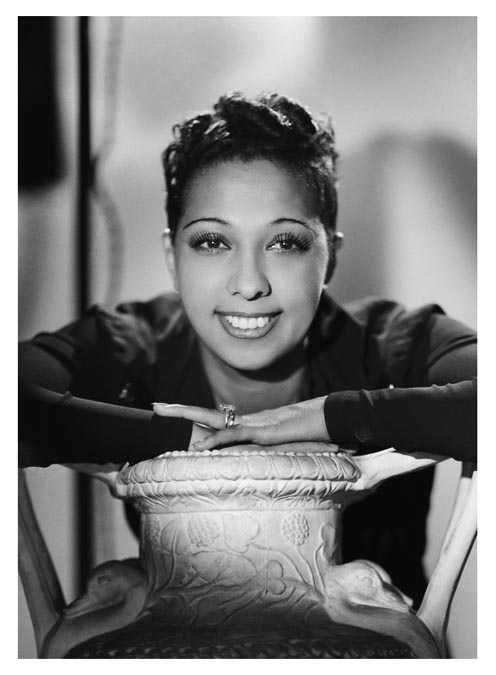
“L’Abbaye de Thelene”
Do what you will J. Baker.

Josephine Baker, American beauty, French hero, and British spy, was born in poverty and named Freda Josephine McDonald, June 3, 1906 in St. Louis. Her grandparents were former slaves. She lived in a series of run-down dwellings without gas or electricity, with wads of newspaper stuffed into cracks in the walls. In Winters St. Louis was bitterly cold. At age eight she took in laundry for white families in St. Louis. She was poorly dressed, hungry, and developed street smarts playing in the railroad yards of Union Station.
Josephine would renounce her American citizenship and became a French citizen in 1937, due in part because of the racial segregation and abuse she had suffered in the United States. She fled to France and became its most celebrated performer.
She headlined the revues of the Folies Bergere in Paris. Her performance in the revue Un vent de folie in 1927 caused a sensation. Her costume consisted of only a short skirt of artificial bananas and a beaded necklace. That would become an iconic image and a symbol both of the Jazz Age and the Roaring Twenties.
She would be called the “Black Venus” or the “Black Pearl.” Josephine was a chameleon, a rebel, a warrior and a rule-breaker. She would prove tireless, resolute, and unbreakable. She left her audiences clamouring for more, even when her dancing left her knees raw and bleeding.
She would sing, dance, and act, and give 100%.. She reached people by giving herself to each audience. “France has made me all that I am,” Josephine declared. “Simply, I shall be eternally grateful to her. I gave my heart to Paris as Paris gave me hers.”
During WWII she aided the French Resistance and for her tireless spy work, she was awarded the Resistance Medal, the Croix de Guerre by the French military, and was named a Chevalier of the Legion d’Honneur by General Charles de Gaulle. Baker closed many shows with singing “I have two loves my French country and Paris.” The song “J’ai deux amours” was released in 1931. She would star in four films which had success only in Europe. Ernest Hemingway called her “the most sensational woman anyone ever saw.” Picasso drew paintings depicting her alluring beauty.
“War was an anonymous brutal machine spawning a world of pain and hurt,” she said. Like magic even her very presence put smiles on the pinched, gaunt, war-weary faces. A biography written by Damien Lewis is entitled, “Agent Josephine. American Beauty, French Hero, British Spy.” It is a remarkable book, well researched, and well written.
As she worked tirelessly, relentlessly, she helped those broken body and soul by defeat. She had become an Honourable Correspondent every day to help feed and comfort refugees who seemed to swell like a biblical multitude. She was an animal lover and took her menagerie of pets everywhere she went to perform. She named her pet cheetah “Chiquita.” Other pets included snakes, a pig, parrots, and songbirds.
Josephine married four times and took numerous lovers throughout her life. Josephine died April 12, 1975 at age 68 in Paris. She was buried in a Monaco cemetery by the kindness of Princess Grace of Monaco.

